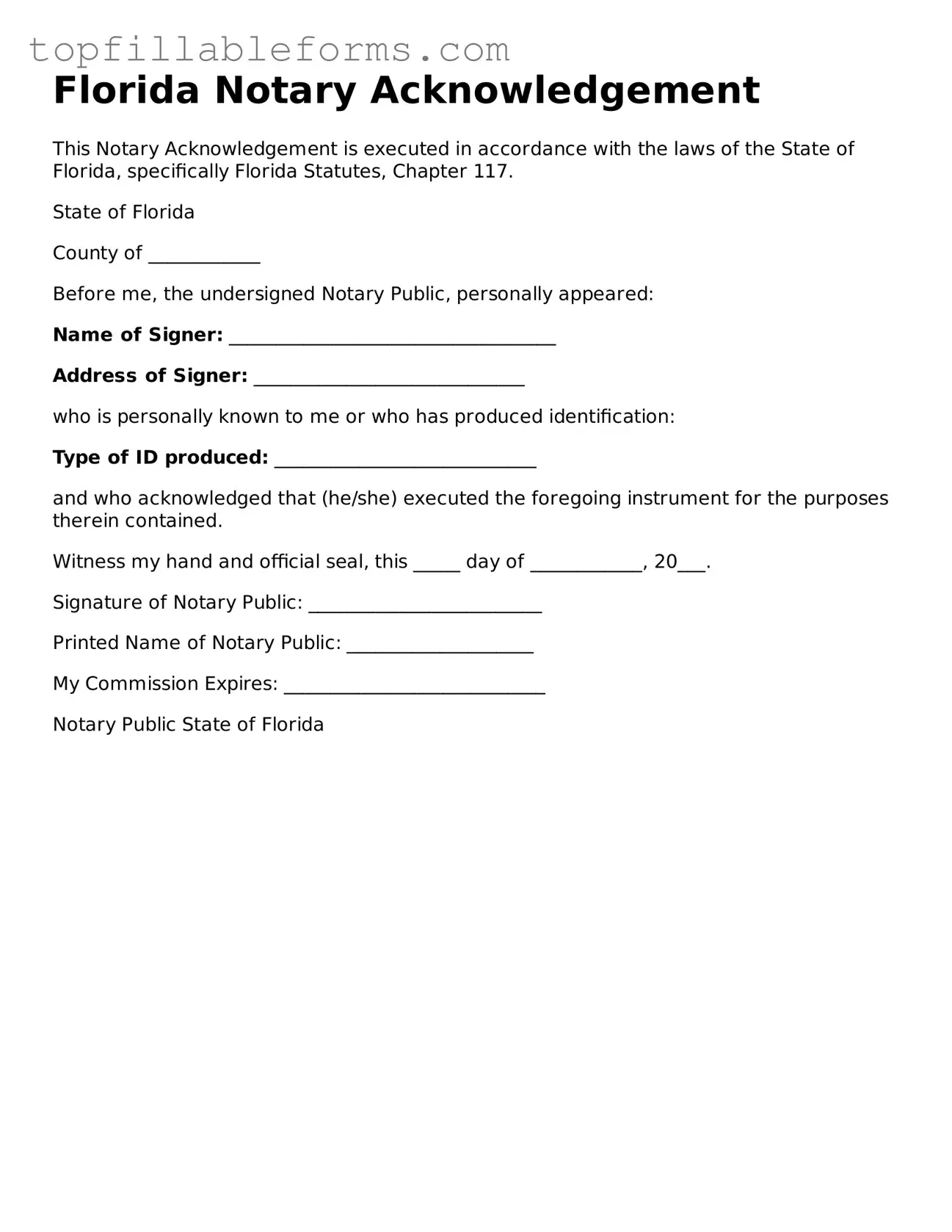Attorney-Verified Notary Acknowledgement Template for Florida
The Florida Notary Acknowledgement form is a legal document that verifies the identity of individuals signing a document. This form serves as proof that the signer willingly acknowledged their signature in the presence of a notary public. Understanding its purpose and requirements is essential for ensuring the validity of various legal transactions in Florida.
Open Notary Acknowledgement Editor Here

Attorney-Verified Notary Acknowledgement Template for Florida
Open Notary Acknowledgement Editor Here
Finish the form now and be done
Finish your Notary Acknowledgement online by editing, saving, and downloading fast.
Open Notary Acknowledgement Editor Here
or
▼ PDF File
